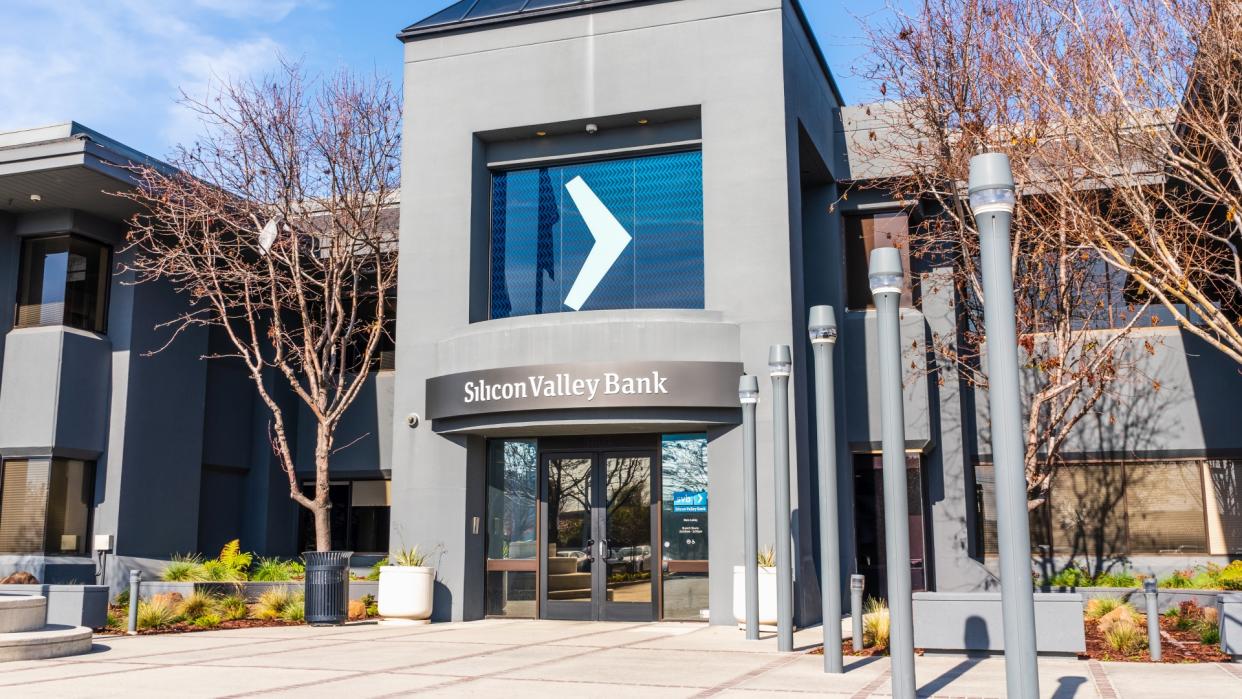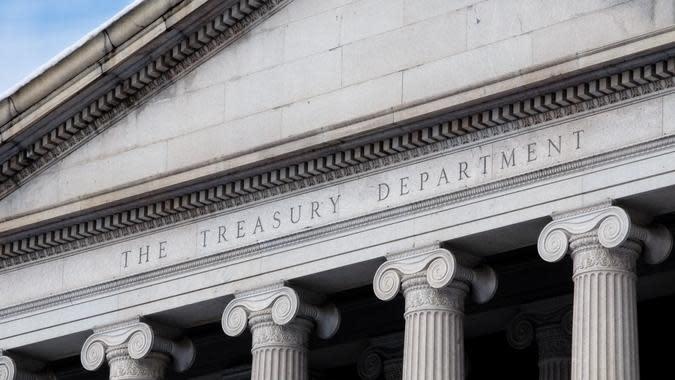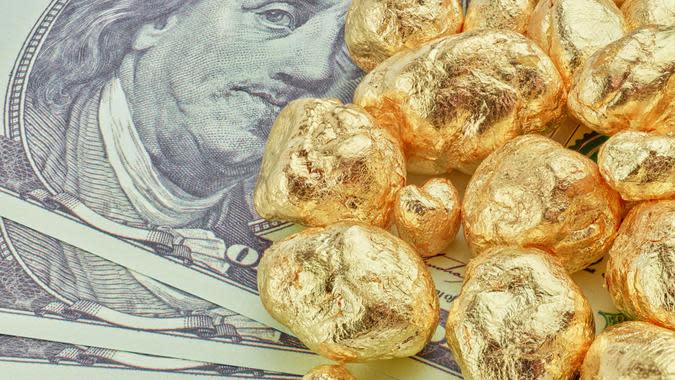SVB Failure Aftermath: 5 Top Ways To Protect Your Money From Uncertainty in 2023

If you have an internet connection or a television, you might feel like the world is coming down around you. Political polarization, cultural gladiator battles, fallen faith in national institutions, rising crime, climate catastrophes and, most recently, a rapid succession of bank failures dominate the headlines nearly every day.
See the List: GOBankingRates' Best Banks of 2023
More: What To Know If You Deposit More Than $10K Into Your Checking Account
These are anxious times at best, and with all that's going on, you couldn't be blamed for wondering if there's any safe place left to stash your cash.
Money management can be stressful under the best of circumstances. However, with stocks still mired in a longer-than-average bear market, interest rates at a 15-year high and now even the old-fashioned savings account feeling uncertain in the face of bank collapses, where are average people supposed to turn to safeguard their cash?
If you're feeling insecure about your financial options, consider the following alternatives to traditional banking that might bring you some peace of mind -- and one that probably won't.

Remember That the FDIC Isn't the Only Game in Town
FDIC insurance offers iron-clad security for deposits under $250,000. Treasuries, which can offer much better returns than your bank, are not FDIC insured. However, they are backed by the full faith and credit of the United States government -- which makes them nearly risk-free.
"Contact a financial advisor who can provide other conservative options for investors, like U.S. Treasuries, Treasury Inflation Protected Securities, etc.," said Charles Claver, senior vice president and director of investment management and trust for First Bank.
Take Our Poll: Are You Concerned About the Safety of Your Money in Your Bank Accounts?

You Know the Expression 'Good as Gold'?
Unlike paper money or numbers on a computer screen, physical gold -- heavy hunks of metal you can hold in your hand -- offers the kind of stability, liquidity and security that has soothed worried minds during uncertain times for centuries.
"In addition to traditional bank deposits, people should consider alternative investments such as precious metals," said Bailey Schramm, financial advisor and founder of BizReport.
According to CBS News, gold is not an investment for those chasing high returns. It is one of the greatest low-risk safe havens that money can buy, though, and there's a reason people continue to turn to it in times of turmoil.
"These investments can offer diversification and potentially provide a hedge against inflation and other economic uncertainties," said Schramm.

Swap FDIC Security for the Chance To Beat Inflation
Nothing can match the security of FDIC insurance, but bank failure isn't the only threat facing your money -- inflation is killing it slowly while it languishes in the safety of your savings account.
Consider reviving your rainy day fund by investing some of it in an emerging class of relatively safe, relatively high-yield real estate trusts.
"Check out Concreit or Stairs from Groundfloor as alternative savings vehicles," said Brian Davis, real estate investor and founder of SparkRental. "They pay 4%-6% interest to help protect your savings from inflation. Both invest your money in pooled funds owning short-term loans secured by real estate. They're not insured by the FDIC, but you also won't lose 4-6% of your money's value to inflation over the next year, either."

Climb a Bond Ladder to Financial Fulfillment
Financial advisors recommend trading stocks for bonds as you approach retirement because bonds are safe. The problem is that they require you to lock in your cash for extended periods of time.
Charles Schwab recommends using a bond-ladder strategy to get the best of both worlds. By purchasing bonds (or CDs) that mature at different dates, you can provide a steady income stream while minimizing the effects of interest rate fluctuations. Staggering increases liquidity while allowing you to chase better yields when interest rates rise -- or cash out -- as your staggered bonds mature.

Be Wary of Brokered Deposits
The FDIC allows only big, well-capitalized banks to solicit and accept brokered deposits, which involve third-party brokers making large deposits in banks on behalf of their investors. The bank then sells those deposits to other brokers, who then divide them up and sell them again for a profit. Investors are attracted to them as an alternative to traditional banking because they offer better returns.
Gary Zimmerman, a former Citigroup investment banker and founder of the cash-management platform MaxMyInterest, urges caution.
"Be wary of brokered deposit solutions," he said. "They are riskier than advertised. It's safer to hold cash directly in your own FDIC-insured bank accounts, titled in your own name. That way you can access funds directly with each bank whenever you need them."
More From GOBankingRates
This article originally appeared on GOBankingRates.com: SVB Failure Aftermath: 5 Top Ways To Protect Your Money From Uncertainty in 2023

